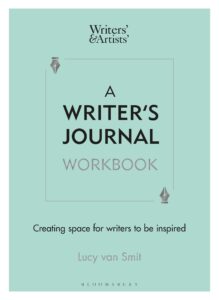
Writers Eliza Robertson and Lucy Van Smit offer tips and advice to help free you from writer’s block.
When a friend asked Samuel Taylor Coleridge why he didn’t simply snap out of his writer’s block, Coleridge replied: ‘You bid me rouse myself. Go, bid a man paralytic in both arms rub them briskly together, and that will cure him.’
Writers can be self-pitying, indulgent creatures. No more so than when the valves of inspiration feel clogged. How many times have you felt, with certainty, “well that’s it. I’ll never write a worthy sentence again.” The danger of perceiving inspiration as somewhat divine or fugitive is that we write (or stop writing) in anticipation of its vanishing.
What is writer’s block and why do we get it?
Writer’s block is the emporary or lasting inability to write – a ‘blockage’ of the words, a creative slump, a failure to turn ideas and the desire to write into the written word.
Lucy: “As writers, we often push ourselves to write, but we have busy lives and writing is sometimes the last thing you feel like doing.
“After my first novel, I had very bad writer’s block. I didn’t know that a lot of things we do as writers make us anxious.
“For example, the screen being 20 inches away: we’re focusing our attention, and neuroscience shows us that, in pre-history the only time we would focus like that is when there was danger which makes us anxious and we hold our breath. We can solve these problems easily, but only if we know they’re there. I didn’t know we could regulate our anxiety and I had to learn all of those skills.
“Another example is that when we criticize ourselves our bodies release stress hormones which, as well as making us feel stressed, become associated with writing, and so we avoid it.”
Can we cure our writer’s block?
Lucy: “A lot of those things are related to neuroscience. We can avoid those pitfalls and keep your attention and focus on the things that light you up.
“You don’t need more books about writing skills, hand-holding or divine intervention to get you going. Inexperienced writers already have all the skills they need inside them, they just have to know that and unleash them.
“The key is that there are ways we can break writer’s block by doing simple things and using skills we already have.”
1. Identify the root of your block
Eliza: “If you’re a parent, or working full-time, or both — your head may be so full of obligations to others that you can’t create a space commodious enough for a ‘state of writing.’ In my experience, ‘states of writing’ require descents into deep, vulnerable spaces, not unlike sleeping. We need time to drop in.
“Ask yourself, honestly, whether writing is a priority for you right now. Because it may not be. (And that doesn’t mean it can’t be re-prioritized in a few months, or next year when Greta Jr. starts daycare.)
“If you answered “no” to this question. Stop reading! Go take a bath. You probably need a break.
“If you answered yes: schedule in pockets of writing time. Write them into your Google calendar or iCal, like you would a dentist appointment.”
2. Praise yourself
Lucy: “Many of us learn to dismiss our thoughts and feelings, especially, if – like me – you had an authoritarian upbringing you. We learn to dismiss our own guidance, so when stimulus is coming in that we could use, we dismiss it.
“Praise is very powerful. By praising yourself, you release dopamine. Criticism releases stress hormones which means we associate the feeling of stress with writing, so we don’t want to write. So pick something you think you did well and just tell yourself you did a good job.”
3. When you’re writing, you’re working
Eliza: “If you answered “yes” to “is writing a priority?” — they should. Maybe plan a conversation about that some day. But in the meantime: change your language around it. If a friend invites you to a movie, don’t say: “Oh, well, I was going to fiddle with a short story.” Say: “Sorry, I’m working.” Even if you’re not getting paid for writing right now, it’s your work. (Note: even if you’re a published author, most of your ‘work hours’ will be unpaid.)”
Okay, let’s say you’ve re-prioritized writing after a hiatus. You’ve quit your job, or retired, or your kids are in school — now you have all the time in the world. And the pressure of that time is paralyzing. You are Coleridge, and the world is bidding you rub your arms together. Material reality is not stopping you: you are stopping you. What’s that about?
4. Stop caring about what others might think
Eliza: “Are you thinking about what your partner / parent / child / editor / teacher / writing group will think? Stop it! We can’t write by proxy. We can’t write communally (unless you’re intentionally collaborating.) We certainly can’t write from fear. Tell yourself that no one has to see this draft. It’s true, first of all. No one has to see this draft. Mercifully, writing is not contemporaneous with its publishing. We don’t write ‘live’. If the cringe-y bits still make you cringe in a year, prune them. In a year. But you might need to write the cringe-y bits first to reach the good stuff.”
5. Get physical
Eliza: “At the risk of sounding like a yoga teacher, we do hold tension in our body. You may be embodying — really, physically carrying — your writer’s block.
Lucy: “There is this myth that writing is about our brain and our mind – that it doesn’t involve our bodies. But every other creative person – whether they’re a dancer, actor or musician – is using their body as an instrument. If you don’t use your body, it creates a greater anxiety. Our bodies have so much wisdom, so the more we put our bodies into our writing, the more we can move forward with it.
“Walking is very powerful for writers – it grounds you. You might be up in your head and away, but when you’re walking you’re connected to the ground. Also, when you walk, your eyes move laterally. That eye movement tells your brain you’re safe. If you struggle with something, go for a walk and your brain will sort it out.”
Eliza: “And here’s a big one: The French verb for inhale is inspirer. (The French verb for exhale is “expirer,” but we won’t overthink that.) Of course, these verbs comes from the Latin, inspirare, to breathe or blow into. The romance languages have been breathing inspiration for millennia, who are you to snub this advice because it sounds woo-woo?”
6. Good distractions vs bad distractions
Eliza: “Learn to tell good distractions from bad distractions. Good distractions occupy your body with fine motor skills to fool your mind into being receptive. They include: washing the dishes. Taking your dog for a walk. Having a shower. Bad distractions: your cell phone. Netflix. Twitter. Etc.”
Lucy: “As a writer, if you’re stressed, just look out the window, your eyes will go panoramic and you can feel your body calm down.”
7. Use ritual to set the mood
Eliza: “If you’ve become so superstitious about your writing (“I can only write after my second cup of coffee, when the house is empty, and I’m using this notebook and a green gel pen…”), use ritual for your benefit instead. Light incense or a candle. If you work with tarot or oracle cards: pull one. Set the mood.”
8. Read
Eliza: “Say you’ve done the above, and you still feel blocked. You’ve progressed from Coleridge to Kurt Vonnegut, who said, “Who is more to be pitied? A writer bound and gagged by policemen or one living in perfect freedom who has nothing more to say?” Ask yourself honestly: what are you reading? Writing without reading is like training for a marathon without eating. And you should be diversifying your food groups. If you only read novels: read poetry. Read short stories. Read non-fiction. Read science. Read philosophy.”
9. Copy your idols
Eliza: “So you’re doing all of the above, and you’re sitting at your desk, and you’re still reading this article instead of writing. This is what I do. Take a book off your shelf — one you admire. One your current work-in-progress aspires toward. The Platonic ideal of whatever you’re trying to accomplish. Open the book at random, or to a favourite passage. Re-write it. Literally type the words out. Wend through the tracks of this author’s thoughts, and let their voice seep into your muscle. At some point, close the book, but allow the spectre of its prose to carry you. It doesn’t matter if your writing sounds too similar right now. Now is not the time for editing. Now is the time for staggering through the wall of self-doubt. Don’t stop.”
 Exercise
Exercise
Still blocked? Try this exercise from A Writer’s Journal Workbook
Lucy: “The naming game is designed to make you present, not in a ‘woo-woo’ way, but through your writing. What do you see? Start naming things. When you try it, you start feeling very calm. Your body relaxes. You can feel it.
“We forget how useful observation is. It’s what you notice about something and how you react to it that makes you a writer. We already have the skills we need, the skills you use in the pub, you can use in your characters. What do I see? What do I notice? How do I feel about this? That perception is specific to you in your life, the more personal you can get, the more universal that appeal is.
“You only need one sentence. You start stitching it together and suddenly you realise, oh, one sentence leads to another. And another. If you break your book down into scenes, it might take you an hour for each, but suddenly you’re taking more and more of these small steps towards your goal. And then your book is done.
“If you tried to write your whole book at the beginning, you’d just stop. This exercise uses the principle of starting very slowly, it seeps into you and suddenly it becomes a pleasure. This and similar exercises make us start to become more present in our everyday life. You start to see this space and you connect to a much deeper side of yourself – whether you call that soul or your inner writer.”
Writer Jon Ransom says:
“Some writers set themselves a word count, but I don’t. I would feel very tied to that. For me, it’s about producing something I like, not a set amount.”
“If I feel stuck:
- I move onto something else, a different part of the same project.
- Try and look at a scene from a different point of view.
- One exercise is to remove everything and start again, gradually introducing everything a piece at a time.”
Why not get inspired with an online creative writing course?
 Lucy van Smit
Lucy van Smit
Lucy is an award-winning author, a screenwriter, and artist. She has worked internationally for NBC News, has made documentaries for Canadian TV on writers like John Le Carre and Ian McEwan and in 2018 her debut novel The Hurting won the inaugural Bath Children’s Novel Award. She’s now put together A Writer’s Journal Workbook, for Writers & Artists, which is jam packed with bite-sized exercises and tips for dismantling writer’s block, improving observational skills, developing characters and much more. It’s designed to help new writers get started, find their voice and improve their skills.
 Eliza Robertson
Eliza Robertson
Eliza studied creative writing at the University of Victoria and the University of East Anglia, where she received the Man Booker Scholarship and Curtis Brown Prize. Her 2014 debut collection, Wallflowers, was shortlisted for the East Anglia Book Award, the Danuta Gleed Short Story Prize, and selected as a New York Times Editor’s Choice. Her critically acclaimed first novel, Demi-Gods, was a Globe & Mail and National Post book of the year and the winner of the 2018 QWF Paragraphe Hugh MacLennan Prize. There are many other accolades to her name for these and other works.
You may also like...
Reintroducing Harriet Martineau with Stuart Hobday & Gaby Weiner
In this episode of The Writing Life, Stuart Hobday and Gaby Weiner discuss their new book ‘Reintroducing Harriet Martineau: Pioneering Sociologist and Activist’, and the the life and legacy of Harriet Martineau.

22nd April 2024
Writing poetry – five tips for staying motivated
‘Make some time to think about your writing, and the things you want to write about.’

16th March 2022
Five tips for keeping your readers gripped
The queen of domestic suspense, Julia Crouch, provides five important tips for keeping readers on the edge of their seat.

19th November 2018






